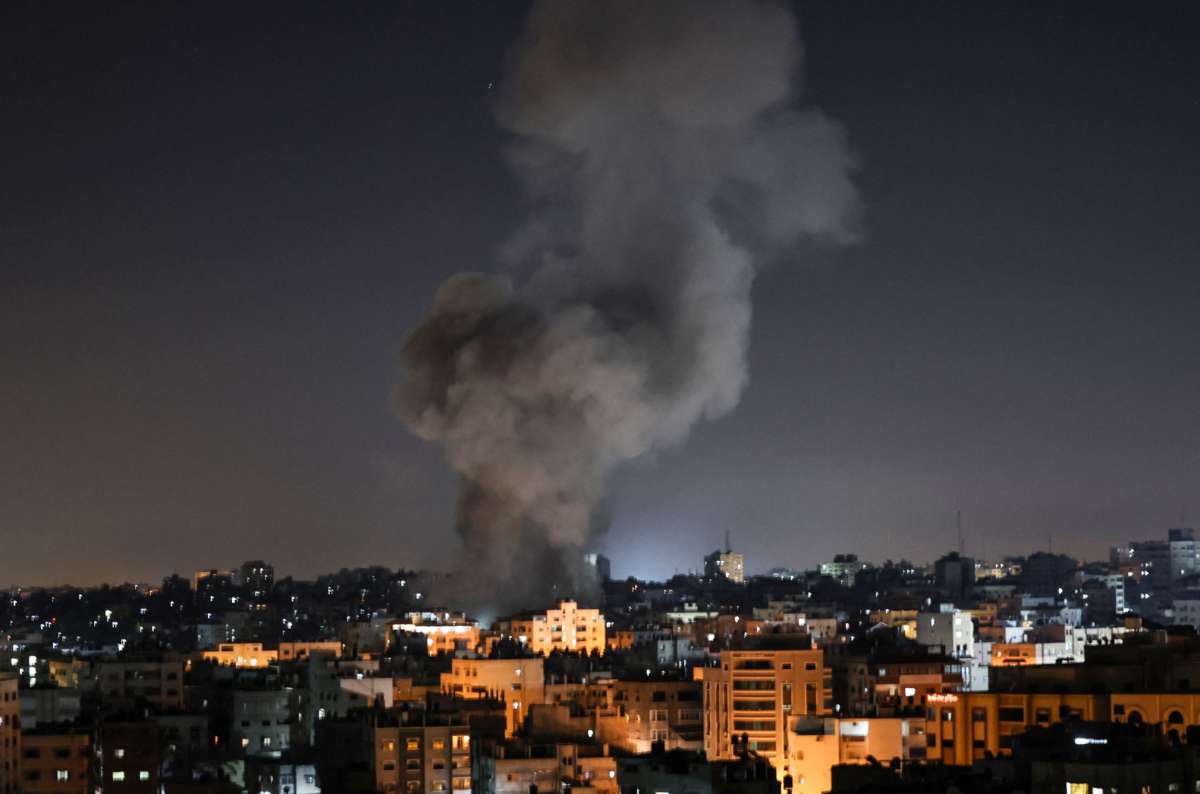Part of the Series
Struggle and Solidarity: Writing Toward Palestinian Liberation
Did you know that Truthout is a nonprofit and independently funded by readers like you? If you value what we do, please support our work with a donation.
On May 15, Palestinians around the world mourn the Nakba, or “catastrophe” in Arabic. The Nakba traditionally refers to a dark period of our history in 1947 and 1948 when Zionist militias drove roughly three-quarters of a million Palestinians — including my grandparents — from their homes. The violence against Palestinians was characterized by disturbing accounts of massacre, psychological torture and sexual assault. Zionist settlers moved into the very houses that they drove Palestinians from, and they have not stopped displacing Palestinians since. The Nakba is ongoing, intentional ethnic cleansing: What we’re seeing in Gaza and Jerusalem this week is proof of it.
The ongoing Nakba is evidenced by the fact that those 750,000 refugees from 1948 have become more than 7 million. The Nakba is what propelled a fanatic group of Israelis this week to chant “erase their names” as the grounds of Al Aqsa Mosque burned. The unending Nakba encompasses every attack on Gaza, every murdered and orphaned child, every home demolition. This Nakba Day let me be clear: Our legacy is not one of “clashes” and terror. For 73 years, Palestinians have been resisting colonialism and dispossession with every breath we take.
In April of 1948, armed militias that would later become the Israeli military rolled through the village of Jaffa and forced 120,000 Palestinians to flee for their lives. My grandparents were among the exiled masses. As I grew older, I learned the harrowing story of how our family became refugees. All my life I’ve imagined what this was like for them: what thoughts raced through their mind as violence engulfed their neighborhood, what possessions they managed to grab from their homes when they left for the last time. Unfortunately, today I don’t have to imagine — I see it happening right now in Sheikh Jarrah.
The residents of Sheikh Jarrah are survivors of the original Nakba and their descendants. They were resettled to the Jerusalem village as part of an international agreement. Since then, settlers have been hell-bent on reproducing the trauma of the Nakba for families like Nabil al-Kurd’s, whose children, Muna and Mohammad, are fighting day and night to prevent their dispossession.
In 2020, the Israeli Supreme Court ordered the families of Sheikh Jarrah to not just leave their homes, but to pay for the legal fees of the settlers displacing them. The evictions were delayed when their case garnered international attention, but the decision stands. The fate of the residents of Sheikh Jarrah is as fragile as a bubble balancing on a needlepoint. Now more than ever, we cannot waver in our support.
Palestinians around the world have erupted in protest against the ongoing Nakba. Where I live in Boston, a crowd gathered in Copley Square to demand an end to Israeli war crimes. Palestinians, anti-Zionist Jews, and folks from a diverse range of communities came out. Speakers connected the struggle for Palestinian liberation to the ongoing movement for freedom for Black people from state violence. Solidarity through struggle runs deep, and for good reason. The U.S. finances the Israeli military with a colossal $3.8 billion annually — and that’s just direct funding. Police departments like the Boston Police Department waste public resources sending officers to Israel to learn strategies for increasing the discrimination, surveillance and harassment already faced by our communities.
Many of the groups fueling the Israeli extremist settler movement are headquartered in the U.S. and registered as American nonprofits. The funders of Palestinian dispossession get a tax break for every check they write. The average American pays about as much to Israel’s murder machine as they do toward the public library system. All of this money should be going into our communities instead. If you aren’t already, it’s time to start paying attention to what Israeli beneficiaries are doing with U.S. dollars.
Yet, all told, people in the U.S. should decry the ongoing catastrophe wrought against Palestinians not only because we are funding it, but also because opposing this violence is the right thing to do.
Today, Palestinians in every corner of the diaspora commemorate the Nakba, but we need you to acknowledge it, too. Encourage your congressional representatives halt all aid to Israel. Support the Boycott, Divestment and Sanctions movement. For the better part of the last century, Palestinians have endured unending catastrophe — particularly in the moments where the world drops its gaze — so don’t look away.
Media that fights fascism
Truthout is funded almost entirely by readers — that’s why we can speak truth to power and cut against the mainstream narrative. But independent journalists at Truthout face mounting political repression under Trump.
We rely on your support to survive McCarthyist censorship. Please make a tax-deductible one-time or monthly donation.
